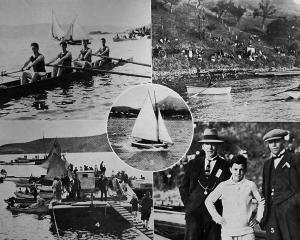Recently an aged Maori was missed from Terena, near Kakahi, and after some days had been spent in an unsuccessful search for him it was concluded (says the Taumarunui correspondent of the New Zealand Herald) that he had been lost and had perished in the intense cold.
For three days and two nights the old man was missing, but he ultimately returned to the settlement along the river bed.
When questioned as to his absence, he said he did not remember much about what happened after he left home.
He woke up on the Sunday evening, he said, and finding himself near the river bank, followed the course of the river until he reached the kainga.
Although the man's accurate age cannot be ascertained, it is fairly certain that he is in the neighbourhood of 100 years, for his daughter recently died at the age of 80 years.
Though bent and decrepit, he is mentally alert.
At intervals, however, he shows a strange lethargy and a disposition to sleep.
It was, apparently during one of these periods that he wandered away, but after his exposure in most severe weather he showed no signs of it having affected his health.
•The story told by an objector to valuation assessment in the court on Monday (says the Southland News) goes to show that some of our out-back settlers are still called upon to face pioneering vicissitudes and troubles.
The man in question was one of the original settlers who took up a section at Haldane in 1894, under the late Sir John M'Kenzie's State farm scheme.
He lives 25 miles from a railway and only an overgrown track, covered with lawyers and fallen trees, gives him access.
He did this 25 miles on foot, tramping through the bush in heavy rain.
He got to the railhead at dark, slept all night in his wet clothes, and came on to town next morning.
''And I think I'll catch a cold, your Worship,'' he concluded.
''And I certainly think you will,'' added the Magistrate encouragingly. The journey, however, was not made altogether in vain, as a substantial reduction was agreed to by the valuer. Whether this reduction will have full compensating value for the expected cold remains to be seen.
•When the Prime Minister was in Otago recently Mr F. G. Duncan approached him with reference to the provision of additional telephonic communication in Central Otago.
Replying to these representations the Prime Minister stated that when the Estimates for this year are being prepared consideration will be given to the providing of an additional wire between Lawrence and Roxburgh, the erecting of a wire to fill the present gap between Miller's Flat and Island Block and the extension to Heriot of the wire now terminating at Edievale.
The erection of these lines would provide telephonic communication throughout the day between offices on the Lawrence-Roxburgh line and also with Heriot, Edievale, and Dunedin.
•It is reported that for several months past two pure white sparrows have frequented a farm at Elgin, feeding with the fowls.
Strange to say, these sparrows are ostracised by the other sparrows, which will not permit any advances of a friendly nature.
•At about 5.15 o'clock last Monday evening a leisurely meteor flashed across the southern sky.
As it was not quite dark (says the Christchurch Sun), the phenomenon was rather an unusual one as a brilliant white flash seemed to slowly traverse about a third of the southern sky. - ODT, 17.7.1914.












